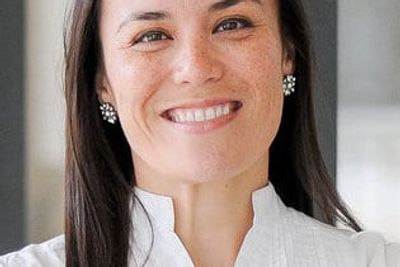A new LGBTQ Victory Institute report shows queer cisgender women* run for office at significantly lower rates than queer cisgender men — but when they do run, queer cisgender women candidates consistently outperform their men counterparts on Election Day.
The analysis of 1,088 LGBTQ candidates endorsed by LGBTQ Victory Fund from 2016 to 2020 shows queer cisgender women won their races 69 percent of the time, compared to just 59 percent for queer cisgender men. It also found endorsed trans women candidates won their races 54 percent of the time.
The findings are remarkably consistent with a 2017 Victory Institute analysis that reviewed endorsed candidates from 2007 to 2016. It found queer cisgender women won 70 percent of the time, compared to 61 percent for queer cisgender men. Other existing research suggests heterosexual men and women candidates win elections at similar rates, making the findings for queer cisgender women candidates even more notable.
While queer cisgender women win at higher rates, the report also shows they run for office in much lower numbers, resulting in a disparity of representation among LGBTQ elected officials. If they ran at the same rate as queer cisgender men, queer cisgender women elected officials would outnumber queer cisgender men elected officials for the first time in the year 2037.
Among the key win rate findings:
- Endorsed trans women candidates won their races 54 percent of the time, while trans men candidates won their races just 18 percent of the time. However, the sample sizes for both – and especially trans men – are small.
- Non-binary/gender non-conforming candidates won 64 percent of the time, however the sample size is also small for these candidates.
Among the run rate findings:
- Queer cisgender women run for office at lower rates than queer cisgender men, accounting for just 380 (35 percent) of the 1,088 endorsed candidates across the five years, compared to 646 (59 percent) who were queer cisgender men.
- Thirty-nine (4 percent) of the 1,088 endorsed candidates were trans women, 11 (1 percent) were trans men and 11 (1 percent) were non-binary or gender non-conforming.
LGBTQ women face many barriers to running for office – from sexist campaign tactics to misperceptions of their own qualifications – along with anti-LGBTQ bias. Yet overcoming those obstacles makes them strong contenders by the time they run. LGBTQ women candidates tend to wait to run for positions they are qualified – and often over-qualified – to hold.
Mayor Annise Parker, President & CEO of LGBTQ Victory Institute
"Their experiences as women and as LGBTQ people also often make them better politicians, portraying an authenticity and sensibility that resonates with voters. LGBTQ women make fantastic candidates and when we run, we win. But we will not achieve representation equitable to LGBTQ men until we start running in much higher numbers,” Mayor Parker said.
The complete report, including visual representations of the data, is available at victoryinstitute.org/fiveyearanalysis.
About Victory Institute
LGBTQ Victory Institute works to achieve and sustain global equality through leadership development, training, and convening to increase the number, expand the diversity, and ensure the success of openly LGBTQ elected and appointed officials at all levels of government.
